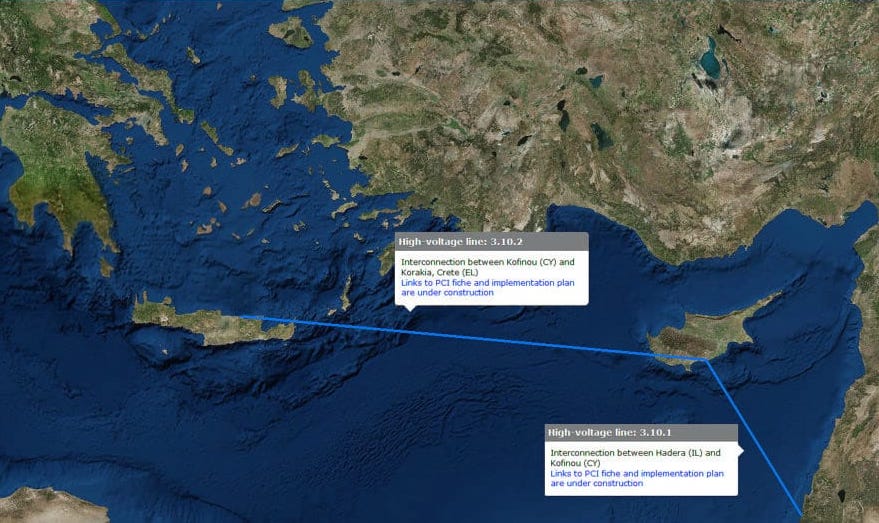The idea for a subsea energy cable that would connect the power grids of Cyprus, Israel and Greece (Crete to be more precise) was first presented in 2012 as a private initiative that was known as the EuroAsia Interconnector. Such an ambitious and costly project that had to have the approval of three states, as well as raise substantial funds, needed a long time to get off the ground. Ten years later, in 2022, the European Commission approved funding amounting to €657m in the framework of the Connecting Europe Facility, and the project was set to go ahead.
Spiralling costs, however, made raising funds more difficult and the government was not very keen on investing in the project and becoming a shareholder. This led to the project promoter EuroAsia Interconnector dropping out and the project was taken over by Greece’s Independent Power Transmission Operator (Admie), which is 51 per cent state-owned; the State Grid Corporation of China has a 24 per cent stake. Admie delivered its feasibility study to the energy ministry last month, in which it claimed that the electricity bills for Cyprus’ users would drop by 30 per cent when the Great Sea Interconnector was operational in 2030.
There was, however, a condition. Consumers in Cyprus and Greece would be charged a levy of 0.6 cents per kilowatt-hour on their bills to fund part of the project; Cyprus would contribute two thirds of this cost and Greece one third, Admie proposed. The levy was necessary so that Admie would recoup some of its initial costs (the total cost of the project, which is for a cable between Crete and Cyprus, is €1.9bn) and to show potential investors that it will have a revenue stream by the time the project becomes operational in 2030.
The idea was rejected by the Cyprus energy regulatory authority (Cera) which said that consumers should not pay for the cost of the interconnector in advance – only when it was operational should they pay. The Federation of Employers and Industrialist agreed with Cera, saying that it was “unreasonable and irrational” for consumers to pay for the project before it was in operation. It is a rather strange business model, but there is pressure on Cera to change its position – Admie reportedly answered all the questions the regulator had put to it and expects a final answer before the end of this month.
We do not have all the information, but a host of questions have been raised regarding the project. How much will the Cypriot consumer have to pay each month for the next five years? What guarantee is there that electricity costs would be reduced by 30 per cent from 2030 when the cable is in operation? Would Cyprus be selling power to Crete via the interconnector and if so, how would its energy isolation be terminated? Is Israel now out of the planning? Would Turkey allow the project to go ahead or would it object to the placing of a subsea cable?
There are countless questions that need to be answered and Cera should not be pressured into replying to Admie before the end of the month if it has not received satisfactory answers. People have been paying the cost of the incompetence of energy policy-makers for too long.







Click here to change your cookie preferences